
Adrian Friedrich Wilhelm Julius Ludwig von Verdy du Vernois, often given the short name of Verdy, was a German general and staff officer, chiefly noted both for his military writings and his service on Helmuth von Moltke the Elder's staff during the Franco-Prussian War.

Karl Wilhelm Paul von Bülow was a German field marshal commanding the German 2nd Army during World War I from 1914 to 1915.

August Karl Friedrich Christian von Goeben, was a Prussian infantry general, who won the Iron Cross for his service in the Franco-Prussian War of 1870–71.

Prince Wilhelm Eitel Friedrich Christian Karl of Prussia was the second son of Emperor Wilhelm II of Germany by his first wife, Princess Augusta Viktoria of Schleswig-Holstein-Sonderburg-Augustenburg. He was born and died in Potsdam, Germany.

Kraft Prinz zu Hohenlohe-Ingelfingen was a Prussian general and military writer during the time of the German Empire.
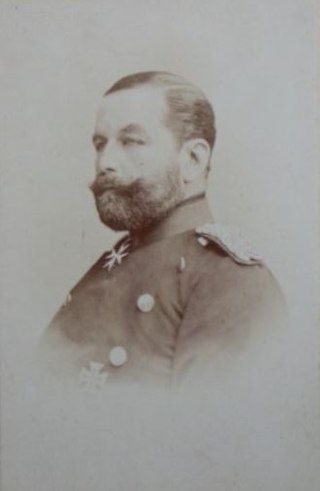
Ernst Karl Ferdinand von Prittwitz und Gaffron was a Royal Prussian Lieutenant General and Knight of Justice of the Order of Saint John.
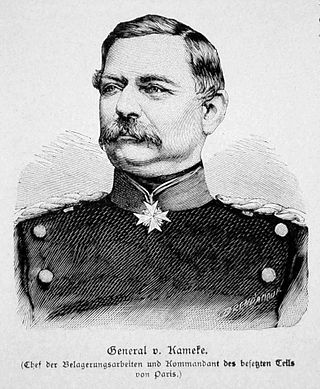
Arnold Karl Georg von Kameke was a Prussian General of the Infantry and Minister of War.

Konstantin Bernhard von Voigts-Rhetz was a Prussian general who served in the Austro-Prussian War and the Franco-Prussian War.
Karl Wilhelm Heinrich von Kleist was a Prussian officer of the Imperial German Army, most recently General of the Cavalry (Germany). On the occasion of his 50th anniversary of service in 1906, Kleist was promoted to General of Cavalry.

Gustav Emil Bernhard Bodo von Kessel was a German general who served in the Austro-Prussian War, the Franco-Prussian War and World War I.

The Battle of Werbach took place during the Austro-Prussian War as part of the Campaign of the Main on 24 July 1866 between the Prussian Alliance and the German Federal Army.

The Battle of Gerchsheim was an artillery battle during the Austro-Prussian War as part of the Campaign of the Main on July 25, 1866, between the Prussian Alliance and the German Federal Army.

Eduard Georg Gustav von Below was a German General of the Infantry who notably served in World War I.
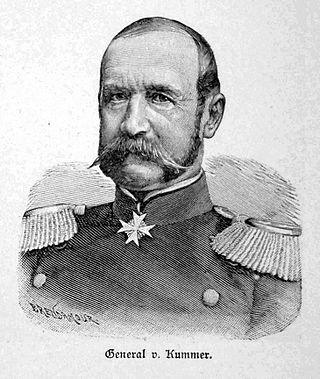
Rudolf Ferdinand von Kummer was a Prussian general who participated in the Austro-Prussian and Franco-Prussian wars.
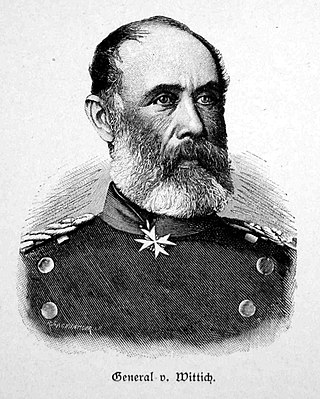
Friedrich Wilhelm Ludwig von Wittich was a Prussian lieutenant general and a member of the Reichstag.

Heinrich Karl Ludwig Adolf von Glümer was a Prussian general who served in the Austro-Prussian and Franco-Prussian wars.
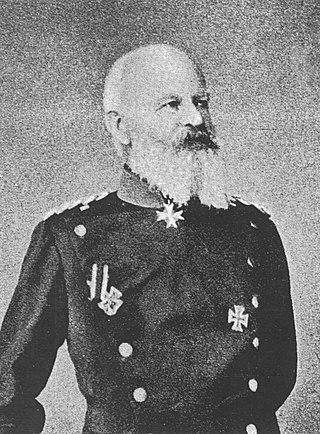
Theodor Alexander Viktor Ernst von Schoeler was a Prussian General of the Infantry who served in the Austro-Prussian War and the Franco-Prussian War through several battles.

Wilhelm Ludwig Erich Felix von Tschischwitz was a German General of the Infantry who participated in World War I. He was part of the Imperial German General Staff during the German spring offensive as well as commanding the Reichswehr after the war concluded.
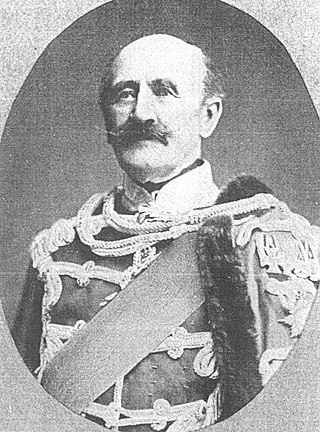
Otto Rudolf Benno Hann von Weyhern Sr. was a Prussian General of the Cavalry during the First Schleswig War, the Austro-Prussian War and the Franco-Prussian War. He commanded the 2nd Cavalry Division during the Battle of Königgrätz.
Friedrich von Scholl, born Friedrich Ludwig Karl Ernst Wilhelm Georg Scholl, was a Colonel General in the Prussian and Imperial German armies, and adjutant in the court of Kaiser Wilhelm II. He was a relative of physicist Wilhelm Hallwachs.


















